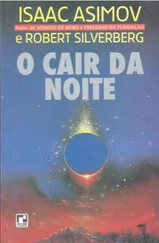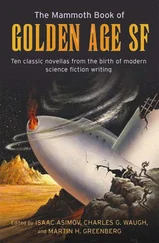Edward Hoch - Isaac Asimov's Worlds of Fantasy. Book 6 - Mythical Beasties
Здесь есть возможность читать онлайн «Edward Hoch - Isaac Asimov's Worlds of Fantasy. Book 6 - Mythical Beasties» весь текст электронной книги совершенно бесплатно (целиком полную версию без сокращений). В некоторых случаях можно слушать аудио, скачать через торрент в формате fb2 и присутствует краткое содержание. Жанр: Фантастика и фэнтези, на английском языке. Описание произведения, (предисловие) а так же отзывы посетителей доступны на портале библиотеки ЛибКат.
- Название:Isaac Asimov's Worlds of Fantasy. Book 6: Mythical Beasties
- Автор:
- Жанр:
- Год:неизвестен
- ISBN:нет данных
- Рейтинг книги:5 / 5. Голосов: 1
-
Избранное:Добавить в избранное
- Отзывы:
-
Ваша оценка:
- 100
- 1
- 2
- 3
- 4
- 5
Isaac Asimov's Worlds of Fantasy. Book 6: Mythical Beasties: краткое содержание, описание и аннотация
Предлагаем к чтению аннотацию, описание, краткое содержание или предисловие (зависит от того, что написал сам автор книги «Isaac Asimov's Worlds of Fantasy. Book 6: Mythical Beasties»). Если вы не нашли необходимую информацию о книге — напишите в комментариях, мы постараемся отыскать её.
Isaac Asimov's Worlds of Fantasy. Book 6: Mythical Beasties — читать онлайн бесплатно полную книгу (весь текст) целиком
Ниже представлен текст книги, разбитый по страницам. Система сохранения места последней прочитанной страницы, позволяет с удобством читать онлайн бесплатно книгу «Isaac Asimov's Worlds of Fantasy. Book 6: Mythical Beasties», без необходимости каждый раз заново искать на чём Вы остановились. Поставьте закладку, и сможете в любой момент перейти на страницу, на которой закончили чтение.
Интервал:
Закладка:
There was a little bay nearby, where the water was calm and deep- The mermaid swam with her prince toward the beachShe laid him in the fine white sand, taking care to place his head in the warm sunshine far from the water.
In the big white buildings bells were ringing and a group of young girls was coming out to walk in the garden. The little mermaid swam out to some rocks and hid behind them. She covered her head with seaweed so mat she could not be seen and then peeped toward land, to see who would find the poor prince.
Soon one of the young girls discovered him. At first she seemed frightened, and she called the others. A lot of people came. The prince opened his eyes and smiled up at those who stood around him-not out at the sea, where the little mermaid was hiding. But then he could not possibly have known that she was there and that it was she who had saved him.
The little mermaid felt so terribly sad; the prince was carried into the big white building, and the little mermaid dived sorrowfully down into the sea and swam home to her father's castle.
She had always been quiet and thoughtful. Now she grew even more silent. Her sisters asked her what she had seen on her first visit up above, but she did not answer.
Many mornings and evenings she would swim back to the place where she had last seen the prince. She watched the fruits in the orchard ripen and be picked, and saw the snow on the high mountains melt, but she never saw the prince.
She would return from each of these visits a little sadder. She would seek comfort by embracing the statue in her garden. which looked like the prince. She no longer tended her flowers, and they grew into a wilderness, covering the paths and weaving their long stalks and leaves into the branches of die trees, so mat it became quite dark down in her gardenAt last she could bear her sorrow no longer and told one of her sisters about it; and almost at once the others knew as well. But no one else was told; that is. except for a couple of other mermaids, but they didn't tell it to anyone except their nearest and dearest friends. It was one of these friends who knew who the prince was. She, too, had seen the birthday party on the ship, and she could tell where he came from and where his kingdom was.
"Come, little sister," the other princesses called, and with their arms around each other's shoulders they swam.
All in a row they rose to the surface when they came to the shore where the prince's castle stood. It was built of glazed yellow stones and had many flights of marble stairs leading up to it. The steps of one of them went all the way down to the sea. Golden domes rose above the roofs, and pillars bore an arcade that went all the way around the palace. Between the pillars stood marble statues: they looked almost as if they were alive. Through the clear glass of the tall windows, one could look into the most beautiful chambers and halls, where silken curtains and tapestries hung on the walls; and there were large paintings that were a real pleasure to look at. In the largest hall was a fountain. The water shot high up toward the glass cupola in the roof, through which the sunbeams fell on the water and the beautiful flowers that grew in the basin of the fountain.
Now that she knew where the prince lived, the little mermaid spent many evenings and nights looking at the splendid palace. She swam nearer to the land than any of her sisters had ever dared. There was a marble balcony that cast its shadow across a narrow canal, and beneath it she hid and watched the young prince, who thought that he was all alone in the moonlight Many an evening she saw the prince sail with his musicians in his beautiful boat. She peeped from behind the tall reeds; and if someone noticed her silver-white veil, they probably thought that they had only seen a swan stretching its wings.
Many a night she heard the fishermen talking to each other and telling about how kind and good the prince was; and she was so glad that she had saved his life when she had found him, half dead, drifting on the waves. She remembered how his head had rested on her chest and with what passion she had kissed him. But he knew nothing about his rescue; he could not even dream about her.
More and more she grew to love human beings and wished that she could leave the sea and live among them. It seemed to her that their world was far larger than hers; on ships, they could sail across the oceans and they could climb the mountains high up above the clouds. Their countries seemed ever so large, covered with fields and forests; she knew that they stretched much farther than she could see. There was so much that she wanted to know; there were many questions that her sisters could not answer. Therefore she asked her old grandmother, since she knew much about the "higher world," as she called the lands above me sea.
"If men are not so unlucky as to drown," asked the little mermaid, "then do they live forever? Don't they die as we do, down here in the sea?"
"Yes, they do," answered her grandmother. "Men must also die and their life span is shorter than ours. We can live until we are three hundred years old; but when we die, we become me foam on the ocean. We cannot even bury our loved ones. We do not have immortal souls. When we die, we shall never rise again. We are like the green reeds: once they are cut they will never be green again. But men have souls that live eternally, even after their bodies have become dust. They rise high up into the clear sky where the stars are.
As we rise up through the water to took at the world of man, they rise up to the unknown, me beautiful world, that we shall never see."
"Why do I not have an immortal soul!" sighed the little mermaid unhappily. "I would give all my three hundred years of life for only one day as a human being if, afterward, I should be allowed to live in the heavenly world."
"You shouldn't think about things like that," said her old grandmother. "We live far happier down here than man does up there."
"I am going to die, become foam on the ocean, and never hear the music of the waves or see the flowers and the burning red sun. Can't I do anything to win an immortal soul?"
"No," said the old merwoman. "Only if a man should fall so much in love with you that you were dearer to him than his mother and father; and he cared so much for you that alt his thoughts were of his love for you; and he let a priest take his right hand and put it in yours, while he promised to be eternally true to you, then his soul would flow into your body and you would be able to partake of human happiness. He can give you a soul and yet keep his own. But it wilt never happen. For that which we consider beautiful down here in the ocean, your fishtail, they find ugly up above, on earth. They have no sense; up there, you have to have two clumsy props, which they call legs, in order to be called beautiful."
The little mermaid sighed and glanced sadly down at her fishtail.
"Let us be happy," said her old grandmother. "We can swim and jump through the waves for three hundred years, that is time enough. Tonight we are going to give a court ball in the castle."
Such a splendor did not exist up above on the earth. The walls and the ceilings of the great hall were made of clear glass; four hundred giant green and pink oyster shells stood in rows along the walls. Blue flames rose from them and not only lighted the hall but also illuminated the sea outside. Numberless fishes-both big and small-swam close to the glass walls; some of them had purple scales, others seemed to be of silver and gold. Through the great hall flowed a swiftly moving current, and on that the mermen and mermaids danced, while they sang their own beautiful songs. Such lovely voices are never heard up on earth; and the tittle mermaid sang most beautifully of them all. The others clapped their hands when she had finished, and for a moment she felt happy, knowing that she had the most beautiful voice both on earth and in the sea.
Читать дальшеИнтервал:
Закладка:
Похожие книги на «Isaac Asimov's Worlds of Fantasy. Book 6: Mythical Beasties»
Представляем Вашему вниманию похожие книги на «Isaac Asimov's Worlds of Fantasy. Book 6: Mythical Beasties» списком для выбора. Мы отобрали схожую по названию и смыслу литературу в надежде предоставить читателям больше вариантов отыскать новые, интересные, ещё непрочитанные произведения.
Обсуждение, отзывы о книге «Isaac Asimov's Worlds of Fantasy. Book 6: Mythical Beasties» и просто собственные мнения читателей. Оставьте ваши комментарии, напишите, что Вы думаете о произведении, его смысле или главных героях. Укажите что конкретно понравилось, а что нет, и почему Вы так считаете.








